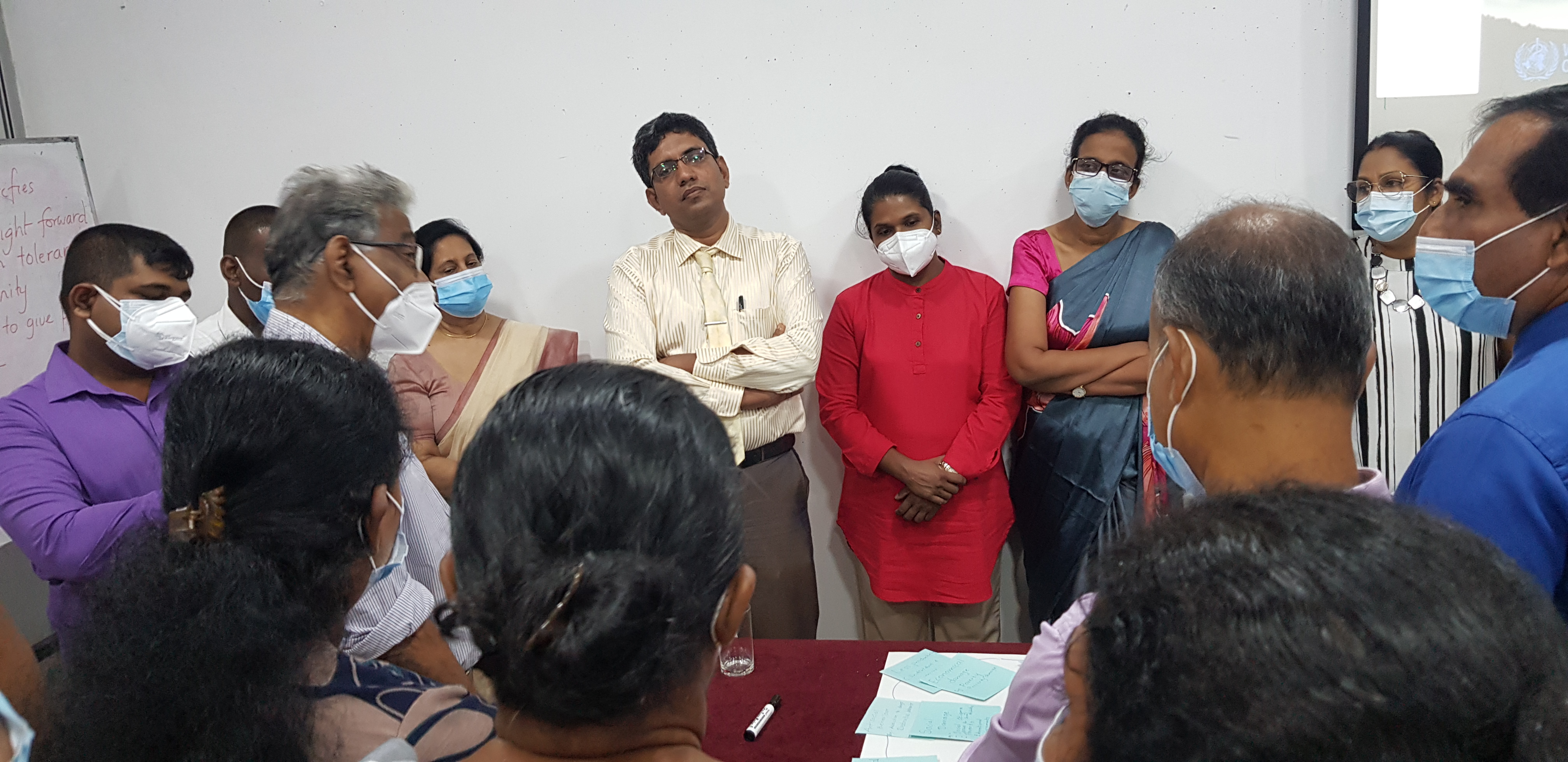WHO has identified impactful integration of Gender, Equity, Human Rights & Disability (GERD) approaches as a key strategic priority and has placed GERD at the core of the “Leave no one behind” approach to reach Universal Health Coverage (UHC) and in achieving the Sustainable Development Goals.
Gender has been incorporated in Sri Lanka’s health related policies since early 90’s including the Population and Reproductive Health Policy of Sri Lanka (1998).
Since then, many initiatives were implemented focusing mainly around enhancing health sector response to Sexual and Gender-based Violence (SGBV). SGBV and health sector response to SGBV has been included in the pre-service curriculum of public health staff and undergraduate curriculum of medical students. Updating the pre-service curriculum of nursing professionals with gender and SGBV care has been a long-felt need which was highlighted in the Policy Framework and National Plan of Action to address SGBV in Sri Lanka (2016-2020) as well.
WHO Sri Lanka partnered with the Directorate of Nursing Education and Family Health Bureau of Ministry of Health (MOH) to transform nursing care to deliver gender- responsive care with the support of Government of Canada.
A module was developed on ‘Gender & Health Care’ following a series of focus group discussions with principals and tutors of public sector nursing training schools, nursing students, practicing nursing professionals in hospitals, patients in public sector hospitals and few LGBTQI+ individuals.
This module contains how gender norms, roles and relations affect health and related behaviours and outcomes as well as health care delivery and health sector response to SGBV. It also discusses about gender inequality as a cross-cutting social determinant of health and providing appropriate care for LGBTQI+ clients.
The developed module will be integrated from the first year of nursing pre-service curriculum in public sector nursing training schools. A Training of trainer programme was conducted on 28 - 29 July 2022, targeting 35 nursing tutors from all 18 public sector nursing training schools in the country. Approximately 2500-3000 nursing trainees complete their training and join health services as professional nurses annually. From October 2022 onwards, trainees will be better equipped with the knowledge and skills to provide gender-responsive nursing care.
As the next step, WHO Sri Lanka, in partnership with the Ministry of Health, plans to introduce an e-learning module on ‘Gender and Health Care’ to facilitate capacity building of 40000+ nursing professionals who are currently in the public service.
WHO, with the Ministry of Health and other stakeholders, will continue to support mainstreaming gender in all WHO supported activities to facilitate reaching UHC goals.

Key related resources
Read more: https://www.who.int/health-topics/gender
Read more on Gender Mainstreaming: https://www.who.int/activities/mainstreaming-gender-in-who-s-programmes-and-actions
